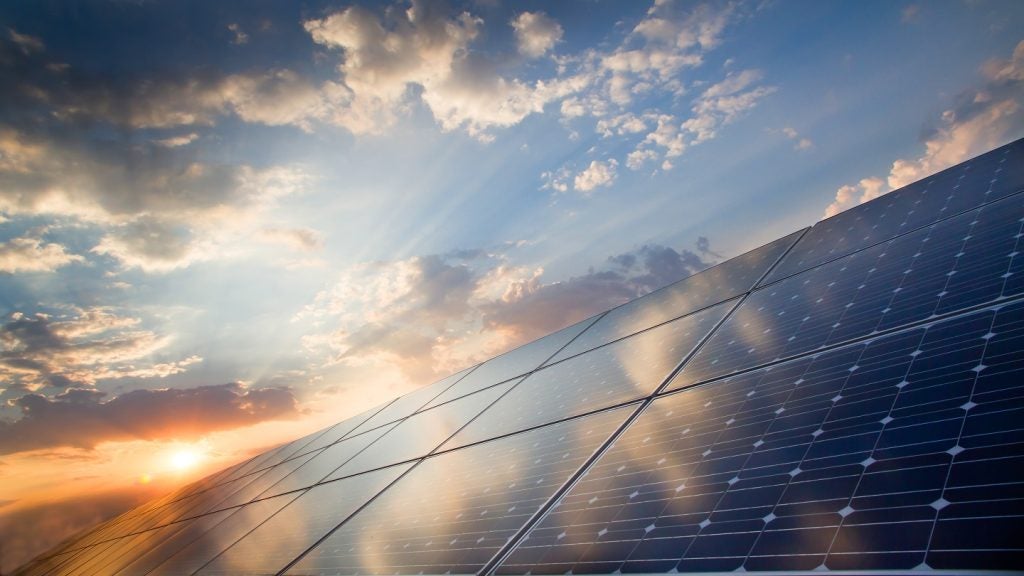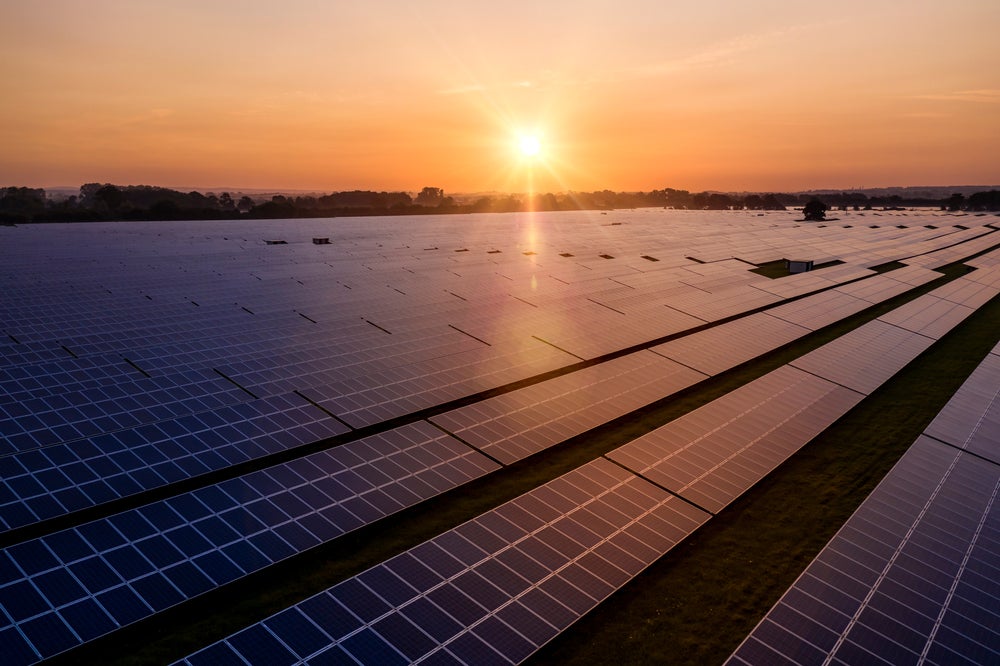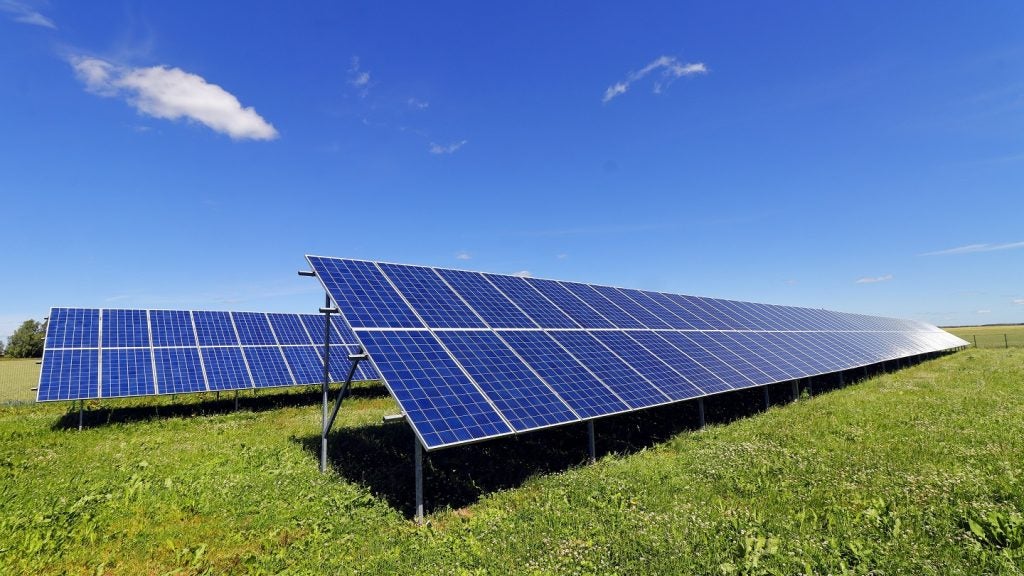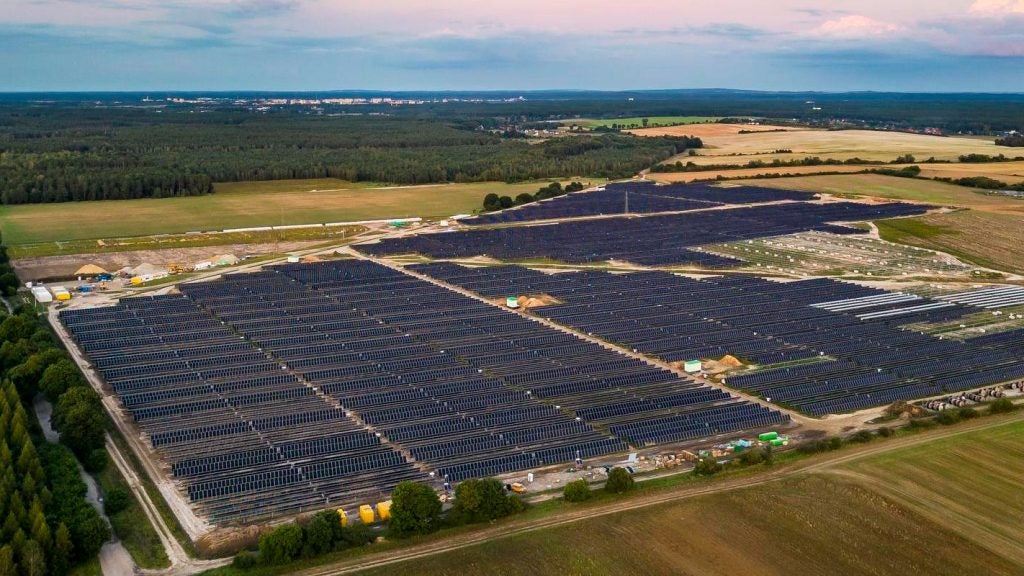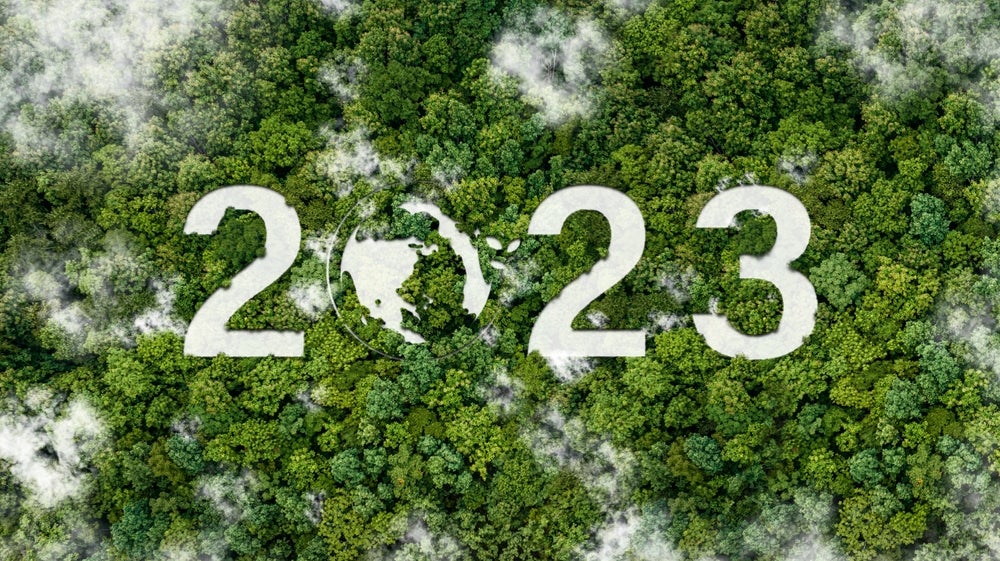
Amidst all the new developments, investments and innovations in the past year, five industry leaders stood out for their achievements. Here are 2023’s power sector winners, based on insights from GlobalData analysts and what made headlines on Power Technology.
1. Iberdrola
“Iberdrola is a leader in renewable energy technology. It has also announced many hydrogen production projects and is increasing its presence in EV [electric vehicle] charging infrastructure.”
– Harminder Singh, GlobalData analyst
Iberdrola is indubitably a 2023 winner in the power sector, with its diverse portfolio and involvement in several significant deals and projects spanning the globe. The company is the world’s largest generator of wind power and plans to only generate low-carbon electricity by 2030.
At the beginning of the year, Iberdrola secured approval to build a 350MW solar farm in Spain and a 1.2GW solar farm in Portugal, in addition to securing €150m ($161m) of European Investment Bank (EIB) funding to develop solar projects with 400MW of capacity in Italy. In April, the company partnered with Glencore and FCC Ámbito to develop recycling and second-life solutions for lithium-ion batteries, and with GIC to develop transmission networks in Brazil. It made several significant moves in the offshore wind sector, striking deals with the likes of Holcim and Salzgitter as well as providing updates on the development of its 496MW Saint-Brieuc wind farm in France throughout the year.
The Spanish electric utility innovated; Iberdrola announced the launch of Advanced Smart Assistant, a new energy-saving cloud technology solution, in May.
Iberdrola’s deals in 2023 consistently made headlines. It finalised a 1.26GW Spanish renewables deal with Norges Bank, agreed on a 410 gigawatt-hour solar energy deal with Vodafone, and completed the sale of a 49% stake in its 476MW Baltic Eagle offshore wind farm to Masdar.
How well do you really know your competitors?
Access the most comprehensive Company Profiles on the market, powered by GlobalData. Save hours of research. Gain competitive edge.

Thank you!
Your download email will arrive shortly
Not ready to buy yet? Download a free sample
We are confident about the unique quality of our Company Profiles. However, we want you to make the most beneficial decision for your business, so we offer a free sample that you can download by submitting the below form
By GlobalDataIn 2022, Iberdrola topped GlobalData’s list of companies most closely aligned with net zero. It was overtaken by Enel in the 2023 rankings, although it retains the edge on total installed renewable power capacity. Iberdrola continues to be a frontrunner, securing a €1bn EIB loan to speed up Europe’s energy transition in June and agreeing to invest £12bn (€13.95bn) in the UK energy sector up to 2028.
2. TotalEnergies
“TotalEnergies has transformed itself from an oil and gas major into a renewable energy-focused company with significant capacity in the pipeline. The company is also a leader as far as the energy transition is concerned.”
– Harminder Singh, GlobalData analyst
Despite Greenpeace accusing the company – among other oil and gas majors – of “deceiving the public about their willingness to curb their climate-damaging impact”, TotalEnergies has made a considerable effort to switch its focus from oil and gas to renewables.
2023 was a successful year for TotalEnergies in terms of of pushing forward its solar agenda. It started to develop 263MW of solar projects and gained a favourable Environmental Impact Assessment for 3GW of solar projects in Spain; began commercial operation of its 380MW Myrtle solar plant with a 225 megawatt-hour (MWh) battery storage project in the US; and began work on a 216MW solar power plant with 500MWh of battery storage in South Africa.
Wind was no exception: the company signed an agreement on investment with the Government of Kazakhstan for the 1GW Mirny wind project. In May, TotalEnergies announced the launch of its largest battery energy storage project in Europe, claiming it “will help ensure the stability of the Belgian and European grids to allow for greater development of renewable energies”.
During the summer, the company partnered with German gas distributor VNG to utilise green hydrogen in its refining process. TotalEnergies and fellow oil and gas giant BP – another 2023 winner – also won a total of 7GW of offshore wind auctions worth €12.6bn, announced by the German federal network agency, Bundesnetzagentur.
Together, TotalEnergies and BP are among the top ten EV charging infrastructure operators in Europe.
However, demonstrating the continued draw of fossil fuels, in November, TotalEnergies announced a $635m deal to buy three gas-fired power plants with a combined capacity of 1.5GW in Texas, US.
3. Ørsted
“Ørsted is a leader in offshore wind. It is also targeting Power-to-X, with around 260GW of electrolyser capacity in the pipeline.”
– Harminder Singh, GlobalData analyst
Considered the top offshore wind developer in recent years, Ørsted continued to live up to its reputation in 2023.
The company entered a partnership with Irish utility ESB in June to develop a 5GW portfolio of offshore wind projects in Ireland. In September, it inaugurated the 200MW Sunflower Wind project in Marion County, Kansas, US. Towards the end of the year, alongside its partner Glennmont, it began construction of the 913MW Borkum Riffgrund 3 offshore wind project in the German North Sea, expected to generate energy for a million homes. In December, it secured a licence to build a 1.6GW offshore wind farm in South Korea.
It was a year of escalating costs for offshore wind, however, and Ørsted was “extremely disappointed” to announce in November that it would cease development of its Ocean Wind 1 and 2 projects in the US. The industry continues to face strong headwinds in 2024, although the US’ first commercial scale offshore wind farm went live this month.
Ørsted also entered a commercial sustainability alliance with Vestas to use low-carbon steel in their jointly developed offshore wind projects.
In May, Ørsted launched a landmark carbon capture and storage (CCS) project in Denmark. Soon after, in June, the company announced it will invest $68bn (DKr471.23bn) to help meet its 50GW renewable power capacity target by 2030.
Ørsted diversified its renewable portfolio by pushing solar efforts last year. In June it committed to reuse or recycle all solar panels from its global operations and invested in One Earth, a 740MW solar farm with associated battery energy storage in the UK in September.
4. BP
“BP is another oil and gas major looking at renewable energy in a big way this past year. The company is also a leader in charging infrastructure for EVs.”
– Harminder Singh, GlobalData analyst
BP started out the year strong, buying a 55% stake in Norwegian company Deep Wind Offshore’s portfolio in South Korea, consisting of four offshore wind projects that can generate up to 6GW of clean energy.
The company’s offshore wind ambitions continued in the UK and US, with 5.2GW of offshore wind projects planned. In an interview with Power Technology’s sister publication Energy Monitor in April, bp’s UK head of project development support and consenting Sophie Lewis said: “We’ve got a very strong heritage organisation that is used to large-scale infrastructure roll-out, so we’re really confident in our ability to be able to deliver [5.2GW of wind across the UK and US], and we have a global presence so we’re able to utilise our existing organisations to help build upon that offshore wind pipeline.”
In November, the US greenlit Empire Wind, an offshore wind project jointly owned by bp and Equinor, expected to generate enough clean energy to power 700,000 US homes. However, in early 2024, the two companies ended their contract to sell energy from their offshore wind project to the state of New York, citing higher borrowing costs, increasing inflation and supply chain disruptions.
Together, Ørsted, Equinor and bp have faced $5bn in write downs on US offshore wind projects because sales contracts could not cover the cost of building and running them.
Separately, bp acquired a 40% non-operated share in the UK’s Viking CCS project from Harbour Energy in April and agreed to take full ownership of solar joint venture Lightsource bp.
5. Enel
“Enel deserves a spot in the winners list as a leader in the energy transition this past year.”
– Harminder Singh, GlobalData analyst
Enel topped GlobalData’s ranking of power companies most closely aligned with net zero in 2023, trumping its Spanish competitor Iberdrola when it came to electricity storage capacity and emissions produced per megawatt. The company is the world’s largest private player in the renewable energy space and the second-largest power company in the world by revenue.
While Enel made a multitude of deals in plans to exit geographies and businesses that no longer align with its strategy, there were many developments in South America. It received approval to begin commercial operations at its Campos del Sol solar power plant and began operations at its 398MW Guanchoi solar plant, both located in Chile. Enel also secured a $300m loan from the International Finance Corporation to build new infrastructure, reinforce and expand the energy distribution network and develop electric mass transportation systems in Colombia.
Further, Enel was a leader in technological development in 2023, signing a cooperation agreement with newcleo to develop Generation-IV nuclear technology and unveiling three new heterojunction technology-based PV modules that are more durable and efficient than the industry standard.
Outside South America, Enel signed 220MW worth of power purchase agreements with Air Liquide and Sasol in South Africa, in addition to securing a tender to build a 22MW solar photovoltaic plant at Leonardo da Vinci Airport in Rome, Italy.



